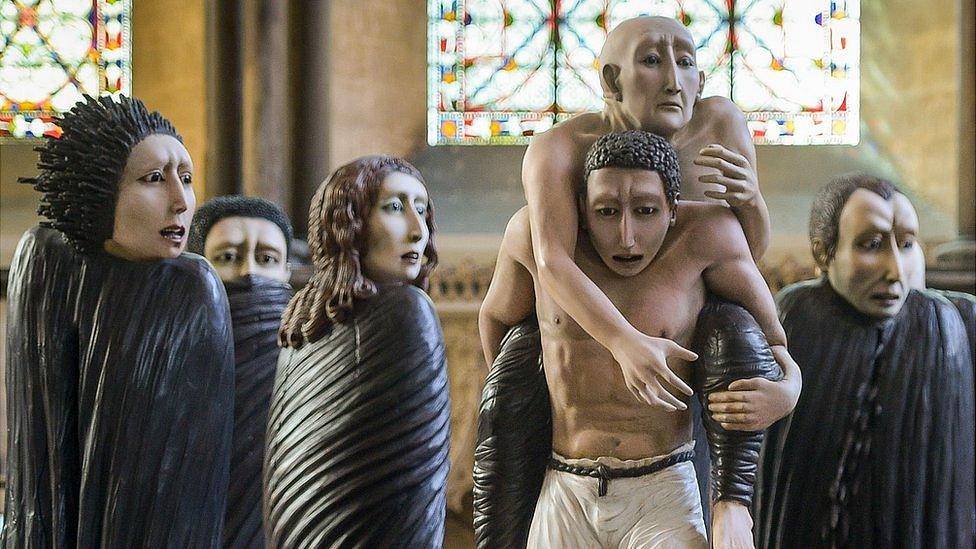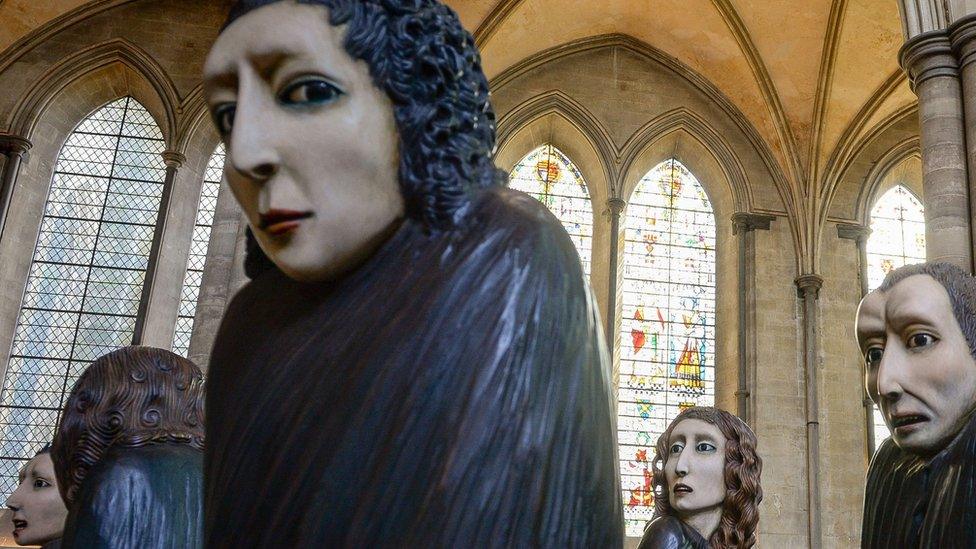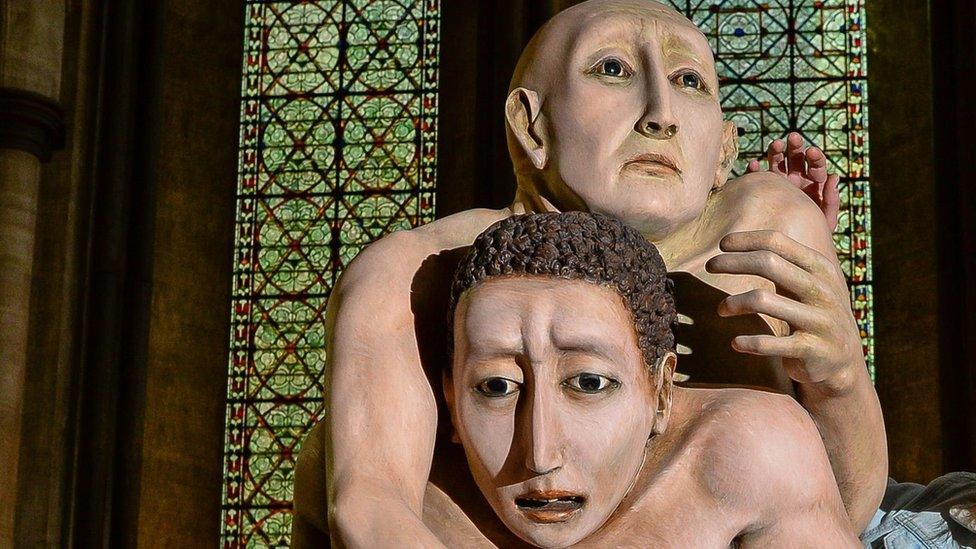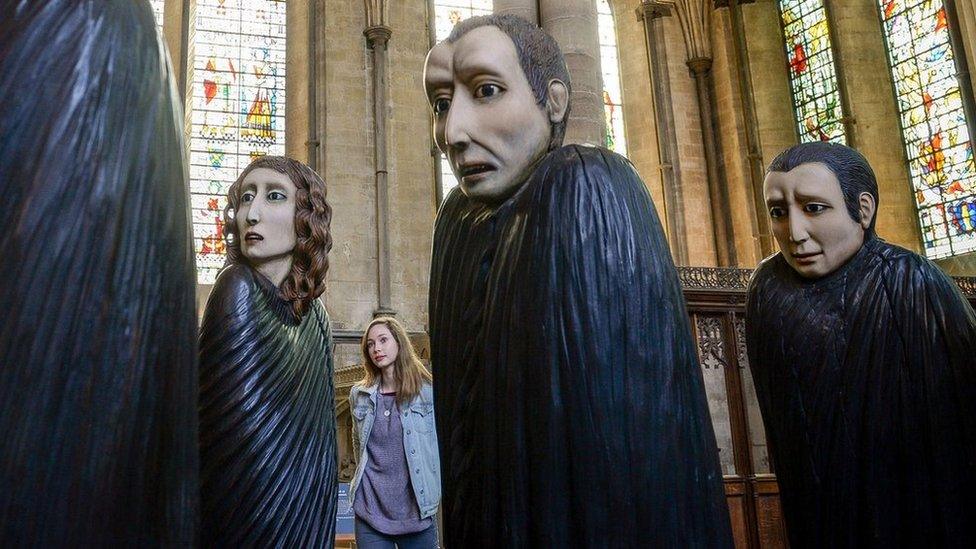Salisbury Cathedral unveils refugee sculptures
- Published

The 12 figures - Shadows of the Wanderer by Ana Maria Pacheco - can be seen at Salisbury Cathedral
A set of 12 oversized "refugee" figures, carved from a single tree, has been unveiled at Salisbury Cathedral.
The exhibition called Dispersing the Night was created by Brazilian sculptor Ana Maria Pacheco who said the sculptures illustrate the suffering of exile, migration and displacement.
At the centre, a young man carries an older man on his back, with 10 figures reacting in the shadows.
The exhibition can be seen on display until 23 July.

The installation includes darkly painted 'shadows' with acrylic teeth and eyes made of onyx to personify the darkness within

In contrast the lighter figures of father and son celebrate their spirit of hope and endeavour
Jacquiline Creswell, from Salisbury Cathedral, said the themes of the exhibition were "hope, an optimistic attitude, and a firm belief in the positive side of human nature".
"Ana Maria's work makes us aware of our vulnerability as well as illuminating our humanity," she said.
"It allows us to reflect on the way we frail, brave humans deal with our journey of life, its many contradictions and dimensions of reality - the imperfectability of existence."
Ana Maria Pacheco said she had been inspired by Virgil's ancient poem The Aeneid, in which a Trojan Aeneas carries his lame father on his back, leading refugees from the burning ruins of Troy.
"The shadows, the figures in the black, belong to the night; they are the memories that we carry within us in the depths of our mind," she said.
"The two leading figures, the father and son, are on their way to a new horizon, a new life, leaving the catastrophe of war behind them."
The art work has previously been on display at Chichester Cathedral and her prints are held at the Tate gallery in London.

Sculptor Ana Maria Pacheco said she had been inspired by Virgil's Aeneid poem